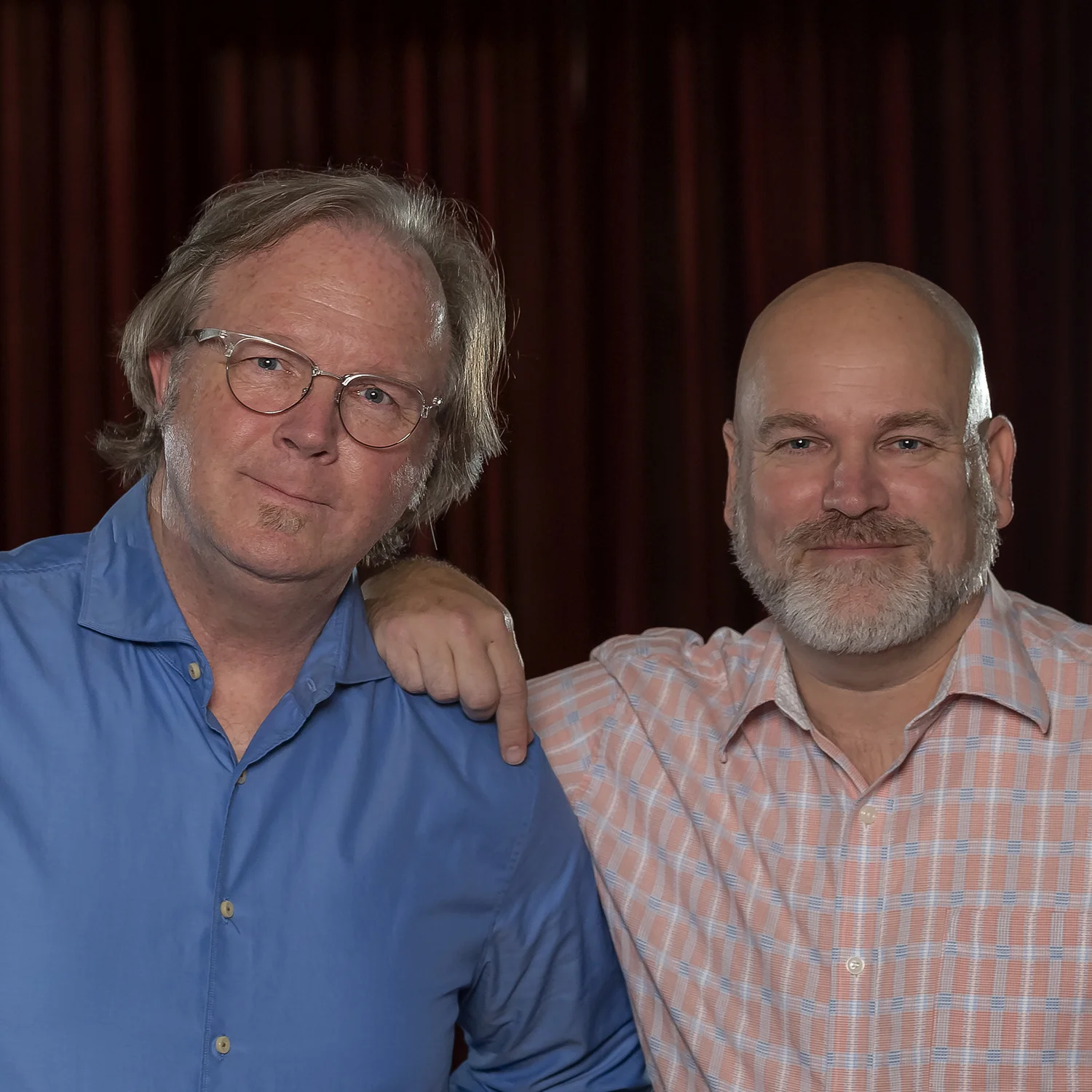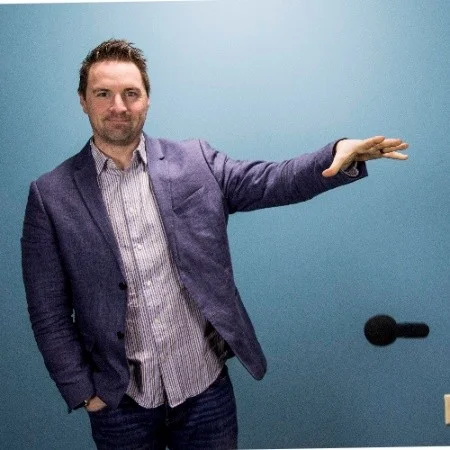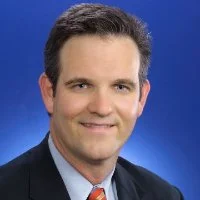Why do people do what they do? It may be the best discussion topic ever.
Sponsored by BehaviorAlchemy & Lantern Group
Podcast Overview
Tim Houlihan and Kurt Nelson, PhD
Kurt Nelson, PhD, the founder of the Lantern Group, and I expand our reach and interests with a podcast of interviews with people we find fascinating.
Our conversations are who contributors to the work of behavioral science as academics or practitioners about improving how we live our lives.
Subscribe at one of the services below.
As of June 2018, Kurt and I established the Behavioral Grooves website here. information on the meetup and the podcast is available.
Subscribe to the Podcast
Grooving with Kurt & Tim: The 4 Drive Model
Kurt Nelson, PhD & Tim Houlihan
When Kurt and Tim founded the Behavioral Grooves, we wanted to glean insights into the applications of behavioral sciences from world-renowned researchers and practitioners. So far, so good! In this shorter episode, rather than interviewing a guest, we converse with each other about a topic near and dear to Kurt's heart: The 4 Drive Model. We discuss Lawrence & Nohria's development of the 4 Drive Model and how it's morphed over the years, how the model remained below the radar of corporate applications until a Harvard Business Review article appeared in 2008.
In this 31-minute discussion about the 4 Drive Model, you can learn about how it's been modified since it was first conceived and how it's being applied to organizational effectiveness, sales incentive design and employee engagement.
When Marketing is Good, You Don't See It
Kyle Simenson
This episode’s guest is Kyle Simenson, a marketing consultant who noted that ‘When marketing is good, you can’t see it.’ His comment instantly brought questions of malevolent and benevolent use of marketing data along with intention and the lines marketers draw when considering the uses of behavioral sciences.
Kyle’s work in digital strategy is particularly relevant in a world where big data can generate highly-tailored messages and can incorporate nudges that appeal to the unconscious mind of the customers. We talked about, on some levels, marketing is entirely behavioral. POC and SEM. Automation tools that observe the dynamics of human behavior.
We discussed books from Dan Ariely’s Predictably Irrational to the Undoing Project on Kahneman & Tversky’s work to Tim Ferriss’, Tribe of Mentors and how they inspire Kyle to deliver insights to his clients. Our conversation also uncovered that Kyle is a not-so-in-the-closet Rolling Stones fan and “Tumbling Dice” would be his theme song.
Silke Brittain
We started our conversation with Silke by talking about her thrill-seeking nature and her background in gymnastics. We couldn't have predicted the deep conversation about influence mapping inside organizations. Silke is the managing director at Clearvoice.agency based in the UK and works with corporations to help them map communication pathways to determine ways to change the cultures of organizations.
Her research demonstrates that 3% of the people in an organization account for as much as 85% of the organization's change, all through informal influence. Her rigorous approach to analyzing situations, developing solutions based on informal communication, and creating influence maps inspired us to want to return to Clearvoice.agency's projects in the future.
Silke revealed that her theme song would be "We Are The Champions" by Queen, a UK band known for its subtle and informal influence on the world! Tim noted in the Grooving Session that one of his favorite UK bands is Tankus The Henge, led by frontman and sideshow barker Jaz Delorean, and Kurt jumped in by noting the carnival-style antics of Johnny on Wash Day, from Kurt's days at Somerfest, in Wisconsin. Ah, life is good with music.
Listen. Enjoy. Share. Repeat.
Bernardo Nunes, PhD
Bernardo believes that applying behavioral sciences to startups is the fastest way to get entrepreneurs up and running in a fast-changing world. At Growth Tribe Academy in Amsterdam, the students work in small teams over short periods to build a company with the help of sophisticated machine learning tools as well as knowledgeable coaches and teachers.
In our conversation with Bernardo, we spoke at length about the ethics and regulations surrounding data privacy, how an article in The New York Times featuring David Laibson, PhD got Bernardo started down this path and how Frank Zappa's 3-song "Hot Rats" album would be his go-to for desert island listening. We had an important discussion about the interplay between policy and marketing and how they influence each other.
There is some background noise occasionally but we don't think it inhibits the quality of the interview. We hope you enjoy it.
Kal Turnbull
"One begins with a judgment and ends with a judgment, and the purpose of facts and figures is to come in between them is to make the one you end with more accurate." This wise comment came from the grand-dad of Kal Turnbull, the founder of Change My View in the Reddit community.
In this interview, Kal shares his discoveries with a community of over 520,000 people willing to engage in civil discourse about views they currently don't buy into. The conversation began with a definition of Fisking (it's not dirty!) and when to consider using it and when not to.
Called by Elon Musk as the "most civil place on the web," Kal's community exchanges ideas in a way unlike anywhere else in our world. Kal noted that good conversations on opposing views require (1) Tone that avoids shame and accusation, (2) a general sense of dispassion (although passion is not a bad thing overall), and (3) Data to support the argument. Ultimately, Kal cites Socrates as the great example of engaging someone in a view-changing discussion.
Don't Be Creepy - Data Transparency
Charlotte Blank
Charlotte is Chief Behavioral Officer at Maritz, says her job is 'selling science.' In this interview, held immediately before our meetup gathering in Minneapolis in February 2018, Charlotte describes research she conducted with Leslie John, Tami Kim, and Kate Barasz to create a recent HBR article titled "Ads That Don't Overstep." Their work yielded two very simple and important messages about communication: 1. Don't talk behind someone's back, 2. Don't make assumptions. In the world of big data, machine learning and algorithm-driven communication, marketers need to pay close attention to these.
An early part of our discussion was on Charlotte's fascination with Franz DeWaal's work with monkeys, bonobos and the mysterious octopus! This led to a discussion about fairness as a key principle in program design and if you're not familiar with DeWaal's seminal work with capuchin monkeys, check it out here.
Charlotte also mentioned a couple of excellent books that she's recently read: Melissa Dahl, publisher of Science of Us, has a new book called "Cringeworthy, A Theory of Awkwardness" and Seth Stephens-Davidowitz's new book called "Everybody Lies" are top picks for those curious about human behavior.
The theme music in this episode, like all the other Behavioral Grooves music, is composed and played by Tim Houlihan. We are grateful to Jon James allowing us to use his work "Transfiguration" during intro and outro of the interview.
How Leaders Can Benefit from Understanding Microexpressions
Todd Fonseca
Todd is an executive in clinical research and communication for Medtronic and holds an interesting array of certifications including Certified Body Language Trainer. He is also the founder of the Anti-Networking Network Meetup and likes to ask meetup guests "What would be your superpower for a hour?" Needless to say, the interview brought interesting concepts to the floor and we had fun doing it.
The interview with Todd included short discussions on the placebo effect, situational awareness, and a lengthy discussion of Paul Ekman PhD's work on microexpressions. The seven key microexpressions (Happiness, Sadness, Anger, Disgust, Contempt, Fear and Surprise) are foundational to human communication and found to be universal - in other words, they exist among people everywhere on the planet. Our conversation delved deep into the identification and application of them.
We grooved on the themes of the importance of having these microexpressions in our communication toolbox and talked about music from the Oh, Hello's and Robert Finley, an artist recently produced by Dan Auerbach of the Black Keys.
How The NSA is Improving their Employee Value Proposition
Chris Dobyns
The Human Capital Strategic Consultant for the Office of Human Resource Strategy & Program Design for the National Security Agency, Chris Dobyns joined us to discuss how the NSA is engaging their workforce more than ever. Let it be known that the US Federal government cares about employees!
He discussed some of his recent research to understand loss aversion and status quo bias among employees by analyzing how large a raise would be required to accept a different job. The conversation culminated in the fascinating idea of how - at some point in the future - employers could adjust the employee value proposition (EVP) on a monthly, weekly or even real-time basis. In this scenario, employees' changing needs due to life events, work situations and personal goals could be addressed by the employer to support and engage the employees where they're at. What an amazing concept!
Of course, we also talked about music and discussed books in our grooving session including Daniel Pink's "When," Carol Dweck's "Mindset" and even a fantasy book to allow our creative minds to drift! Listen and enjoy.
James Brewer
Many firms use rewards and incentives to motivate their reps. However, it was only when a complete audit of all the rewards and recognition tools in place at a large pharmaceutical firm did the realization come that they were leaving motivational power on the table. In this interview, James Brewer, Director of Commercial Operations at Eli Lilly & Company, tells us how Lawrence & Nohria's 4 Drive Model acted as a foundational tool to discover what was working and what was missing from Lilly's rewards and recognition models.
In a fascinating and in-depth interview into the challenges and outcomes of James' work, we unpeeled the traditional views of how to get the best out of sales reps. At one point, at about the 45-minute mark, James stopped us and said, "We need to talk about outcomes." It was an excellent discussion. We hope you enjoy.
Using behavioral science to save lives
Anurag Vaish
In this episode, we talk with Anurag Vaish, Co-Founder of TheFinalMile, one of the largest behavioral science consultancies in the world. TheFinalMile has offices in Mumbai and Chicago and we caught up with Anurag while he was in India in December of 2017. Our conversation covered topics from how the unconscious influences our decision making, why organizations should do more testing of their ideas as well as the influence that Robert Cialdini, PhD had on Anurag.
We also discussed some of the projects that TheFinalMile has done – particularly the train safety project in Mumbai – which now saves thousands of lives every year. It is a great example of the power that companies can have if they use good science and really focus on understanding what actually drives our behavior. We followed some rabbit holes into how the human brain is lazy and the impact that environment and choice architecture have on our behaviors.
NOTE: There are a few moments of bad internet connection where some words get jumbled; however, the majority is clear and we are grateful for that clarity being 10’s of thousands of miles apart when we spoke.
Grooving on Branding
Aaron Snyder, PhD
In this episode, we spoke with Aaron Snyder, Director of Special Projects at Lexicon. Lexicon is one of the largest branding companies in the world. They are responsible for creating some of the most famous household brands including Pentium, Blackberry, Dasani, Embassy Suites and Swiffer. What we found interesting in our conversation was the tremendous amount of science that goes into the creation of brands. We also spoke about Mad Cow Disease, how tension = attention and even had a fun conversation about our choice of toothpaste. Lastly, we enjoyed some geeky discussion about research from Zakary Tormula and Baba Shiv.
Dollarizing Consumers
Scott Jeffrey, PhD
In this episode, we discuss the concept of justifiability with one of its earliest researchers, Scott Jeffrey, PhD. Scott was early among researchers, including Itamar Simonson at Stanford, to note that part of what makes a thing a 'reward' is its difficulty to be justifiable. In other words, the best reward is something that we would NOT justify spending our own money on.
Scott took an interesting turn with his theme song and we had also talked about how employee engagement platforms are 'dollarizing' the relationship between the employer and the employee. Scott also brought up Max Bazerman's "Arguing with Yourself and Losing" model which coaxed a spirited discussion among us.
Kurt and Tim grooved on holiday eats and lots of geeky stuff and skipped the 'what we're listening to' in this episode. More for later!
Being Change Ready
Chad Emerson
Chad Emerson founded The 421 to help people with addictions make better decisions. He focuses his comments on being "change ready" and the importance of preparing oneself for making a change in life. Chad's website www.the421.com includes more information about his Minneapolis-based agency and the work that he's doing to transform lives using behavioral sciences.
In Kurt's and Tim's Grooving Session, we talked about the importance of considering how the application of behavioral sciences impact all of us - not just "them" but "us" too! We also discussed drop dead donuts and reminisced on some fun tunes.
To Decide or Not to Decide, is that the Question?
James Heyman, PhD
In the Behavioral Grooves first podcast, Kurt Nelson, PhD and Tim Houlihan interview James Heyman, PhD, a professor and researcher at the University of St. Thomas in St. Paul, Minnesota. Dr. Heyman's research has led him to collaborate with renowned behavioral economists including Dan Ariely, PhD, and focuses on decision making in a world with too much irrelevant information. The interview with Dr. Heyman runs from the beginning of the podcast through 38:00 minutes. At 38:00 minutes, Kurt and Tim have their Grooving Session where they discuss topics from the interview, from the Behavioral Grooves session that month and other random things that pop into their heads.

















